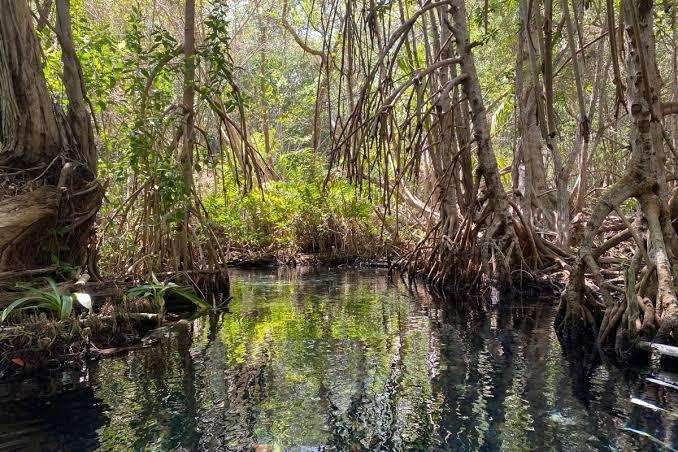The director of Oceana Marine Sanctuaries in Mexico, Miguel Rivas Soto, assured that every year 100 hectares of mangroves are lost in Yucatan and called for its preservation.
In Yucatan, 100 hectares of wetlands are lost each year, said the director of Marine Sanctuaries of the Oceana organization in Mexico, Miguel Rivas Soto, who emphasized that, since the 1970s, more than 60 percent of these have disappeared in Mexico. natural areas.
Within the framework of World Wetlands Day, the activist recalled that Yucatán occupies third place nationally in terms of extension (96 thousand hectares) and the type of mangroves that inhabit the area, which is why he called for “paying more attention to their preservation.”
According to the Mangrove Monitoring System in Mexico, the Yucatecan Peninsula occupies the first national place in mangrove extension with 4,544 hectares, that is, 60 percent nationally, of which 200,000 are in Campeche, 247,000 in Quintana Roo and the rest, in the entity.
Urge tomar acciones para frenar la pérdida de humedales. Conoce más en: https://t.co/CJpxT7Tipk pic.twitter.com/9FyA3wseBl
— Oceana en México (@OceanaMexico) January 30, 2024
Rivas Soto recalled that wetlands are very important areas for the preservation of the biodiversity of flora and fauna species, but they also have a direct impact on human activities such as fishing, since they are these spaces where various marine specimens have their first stages of life to later move to the sea, from where they are extracted for food purposes.
He explained that the main causes of the disappearance of wetlands are: the disorganized growth of the urban area, unplanned tourism, and the expansion of constructions – such as summer houses – and housing complexes, among other factors.
He highlighted that among the environmental services that wetlands provide are: being a great home for species of birds, fish, and reptiles, in addition to having an importance in the capture of carbon dioxide, what specialists know as “blue carbon”, fundamental to combat the current climate crisis around the world. They also serve as natural protective barriers in the regions, against tropical cyclones or hurricanes.
Miguel Rivas warned that, despite the importance of wetlands, they are lost up to three times faster than the planet’s forests. “The call we want to make from Oceana this February 2 is that we must pay attention to wetlands, we are losing them at a very rapid rate and we are losing them because we do not value them.”
Wetlands are defined as predominantly aquatic areas, ranging from lakes and rivers to underground aquifers, swamps, marshes, peat bogs, and mangroves, among other ecosystems. Despite their vital importance, they are often overlooked, and converted into sites for real estate development or recreation centers due to the unpleasant odor associated with the abundant organic matter present. The director of Oceana Marine Sanctuaries lamented the accelerated loss of wetlands worldwide, a trend from which Mexico and Yucatán do not escape. The Center for Research and Advanced Studies (Cinvestav), of the National Polytechnic Institute (IPN), the 100 hectares of wetlands that Yucatán loses on average “is an alarming situation,” which affects not only biodiversity but also the migratory birds that They depend on those environments.
TYT Newsroom



